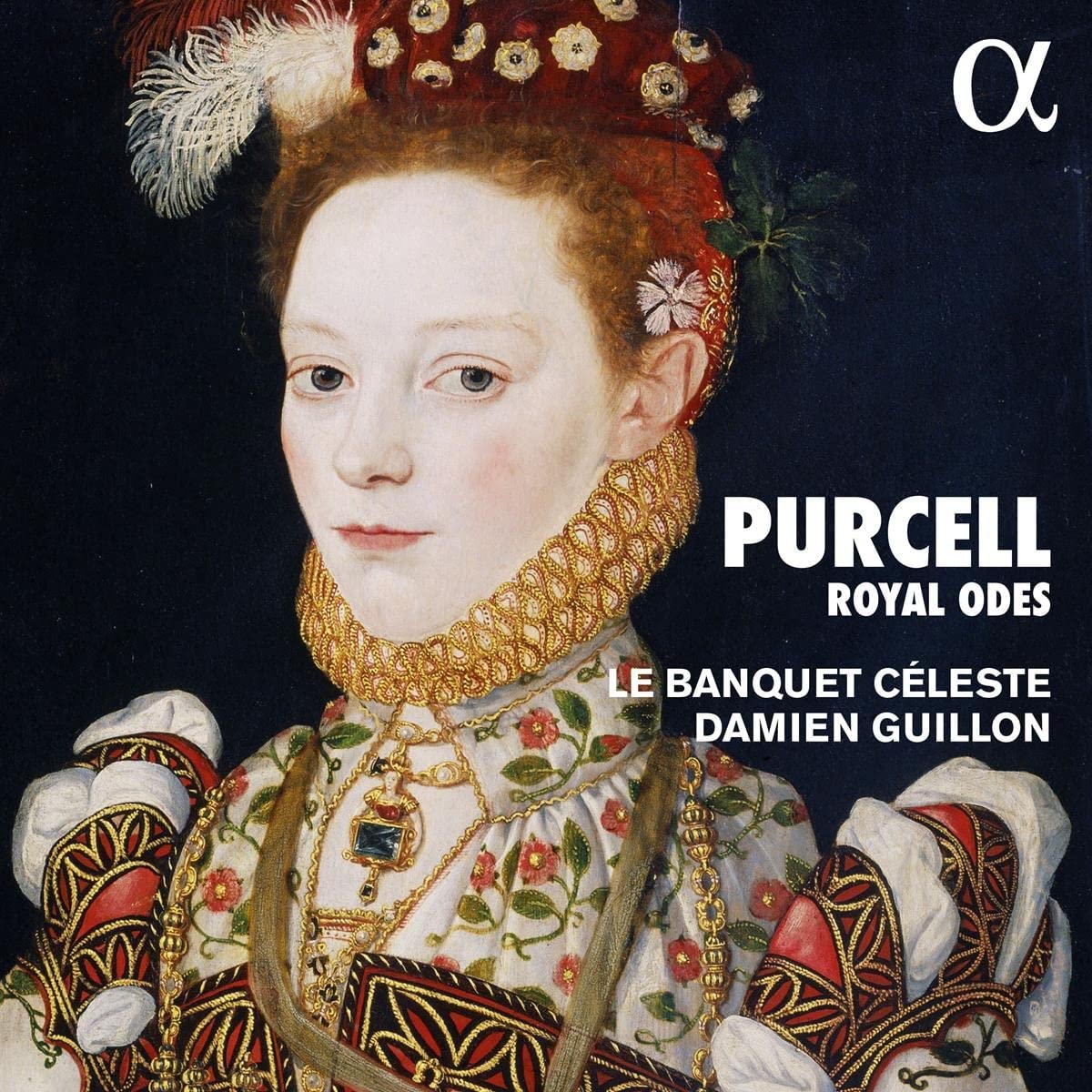Le Banquet Céleste, Damien Guillon
63:23
Alpha Classics ALPHA 780
Click HERE to buy this recording on amazon.co.uk
[These sponsored links keep this site FREE TO VIEW]
I have recently rather late in the day encountered ‘Perpetual Night’, the superlative CD (harmonia mundi) of 17th-century English repertoire by mezzo Lucile Richardot and Sebastien Daucé’s Ensemble Correspondances. Now here’s another disc from a distinguished French vocal ensemble to demonstrate compellingly how flawed our thinking is when we take on a proprietorial attitude to our own early music. That applies especially to Purcell, who many mistakenly tend to regard as quintessentially English and in so doing overlook the influence in his work of both French and Italian music.
If Continental influences are undeniably at work in Purcell’s music, the concept of the celebratory royal ode was an entirely English one, though one might perhaps find some analogy in the sycophantic opera preludes addressed to Louis XIV by Lully and his contemporaries. Today their principal interest, leaving aside the astonishing quality – out of all proportion to their occasional purpose – of the music Purcell provided for them, is their commentary on and reflection of historical events. Thus of the three odes included here ‘From those serene and rapturous joys’ (Z 326) is the welcome ode for Charles II composed in 1684, in the September of which the king returned to Whitehall following a summer spent partly in Winchester, thus the poet John Flatman’s references to the ‘rapturous joys a country life alone can give’. Rather less easily explained are the references to the raising of Lazarus. But it’s a splendidly variegated work, with a French overture, florid Italianate solo airs, and a very English ground bass in the superb bass air ‘Welcome as soft refreshing showers’. The welcome ode for 1683, ‘Fly, bold rebellion’ (Z 324) is also linked to a specific historical event, in this case the so-called Rye House plot, a thwarted attempt to kill both Charles and his brother James earlier in the year. There is not unexpectedly considerable menacing tub-thumping, but the jewel of the work is the exquisite trio for two sopranos and countertenor, ‘But heaven has now dispelled’, in this performance the delicately interwoven filigree of the voices and ethereal lightness of touch forming a striking contrast with much of what has gone before.
With the third and longest of these odes, ‘Why are all the Muses mute?’ (Z 343) we come to the first welcome ode Purcell composed for a new king, James II after his accession to the throne in 1685. The anonymous text is ostensibly largely a panegyric, though not without barbs and ambiguities, in which the new and unpopular Catholic monarch is throughout addressed as Caesar. Its opening is unique. Instead of the expected overture, we are drawn into the work by an introverted solo for high tenor set to the words of the ode’s title, here beautifully done with rapt concentration by Nicholas Scott. Only after this verse does Purcell introduce an instrumental prelude. Other highlights in a remarkable piece include ‘Britain, that now art great’, a ground bass air for countertenor – in this case, another of the CD’s stars, Paul-Antoine Bénos-Djian – succeeded by a ravishingly lovely orchestral ritornello.
The scale of the performances is similar to that employed by Robert King in some of his more recent re-recordings of the royal odes. That is to say two voices per part in choruses and single strings per part. King himself has recorded ‘Why are all the Muses?’ in this way, which reflects the kind of forces Purcell would have employed. Comparisons are fascinating, with Guillon generally taking a more lively approach than the latter-day King, whose stellar group of soloists are inevitably more individualistic than Le Banquet Céleste’s beautifully tuned and integrated ensemble. Both approaches have their own value, with the mostly French performers relishing the marvellous expressive qualities inherent in Purcell’s writing and, unsurprisingly, the strong feel of dance it includes. An outstanding disc that underlines convincingly the fundamental fact Purcell is fully exportable to and performable by our near-neighbours. Coincidentally, while working on this review a newsletter from Le Banquet Céleste arrived in my in-box. Upcoming are two concert programmes devoted to 17th-century English music. And that can only be good news for all of us.
Brian Robins
